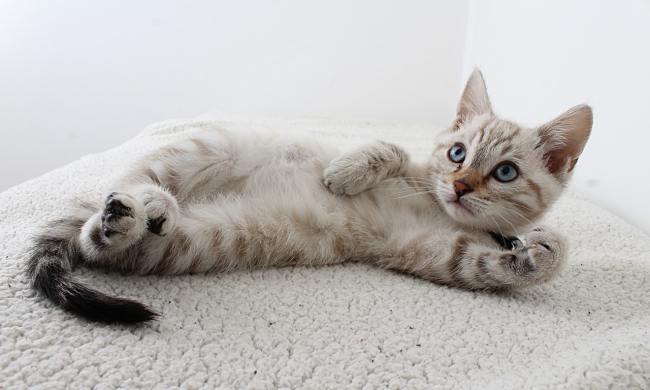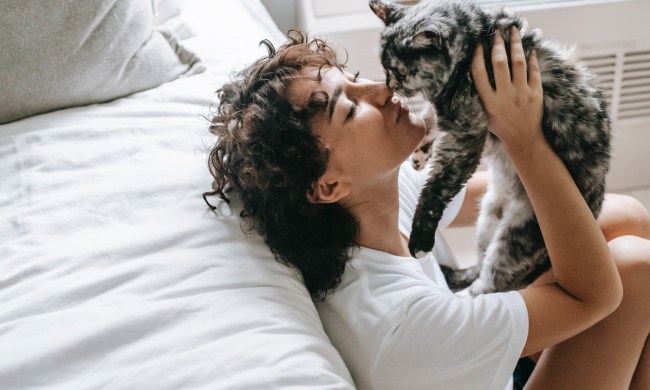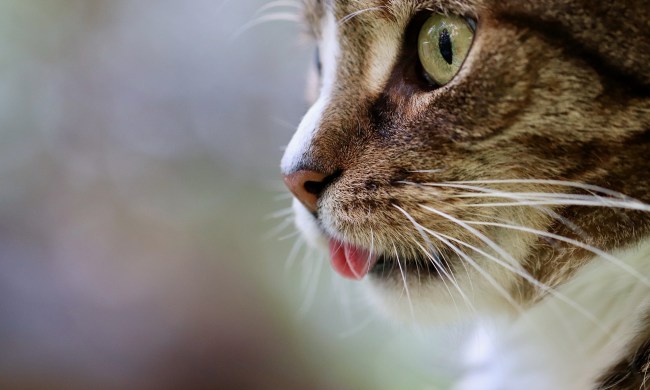If you’ve ever wished you could tell just what your cat was feeling, you’re not alone. Cats are mysterious creatures, and understanding their behavior can be a challenge. But if you learn to read cat body language, you’ll have some insight into what your cat is feeling and what he’s trying to tell you. As you study common body language elements, chances are you’ll start to notice that your cat is continuously communicating with you using his body, even if you hadn’t noticed it before now. With a little time and effort, you’ll be better able to understand your cat.
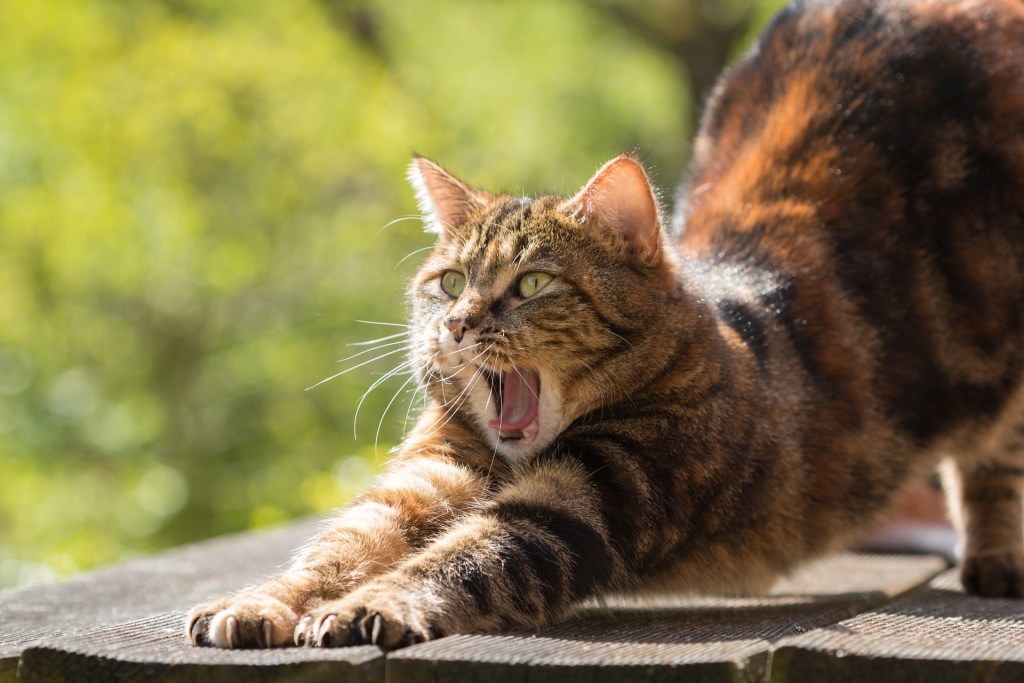
Body shape
Common cat positions can give you clues about how your cat is feeling. A cat who’s scared or angry will try to make himself bigger by arching his back or standing sideways in relation to what’s scaring him.
In contrast, when your cat is comfy, he’ll be standing normally with his tail up. He might point his head toward you, indicating that he’d be happy to let you approach him.
If your cat is intimidated or fearful, he’ll try to make himself as small as possible. He might crouch down toward the ground and wrap his tail around him to minimize the size of his body.
Tail posture
Your cat’s tail posture provides important information about how he’s feeling. A cat who holds his tail up high may be showing that he’s friendly, excited, or just happy and confident.
If your cat’s tail is tucked down low or held against his body, he’s signaling that he isn’t comfortable. He’s making himself smaller and is trying to avoid a threat. Cats who tuck their tails are fearful and uncomfortable.
If your cat holds his tail up and is flicking it or moving it around, he’s probably agitated. This movement indicates that your cat is upset, and you should back off and leave him alone.
Ear position
Watching your cat’s ears can also help you understand the messages he’s conveying. If your cat’s ears are forward, he’s probably feeling calm and confident. But if you notice that he perks his ears and holds them up higher than normal, he’s alert and may be focusing on something.
If your cat flattens his ears down against his head, he may be angry or scared. You’ll need to look at the rest of his body language to differentiate between the two.
Eye signals
Your cat’s eyes also communicate information about his comfort level and mood. If your cat trusts you, watch to see if he slowly blinks at you. This slow, casual blink indicates that your cat is comfortable and feeling affectionate toward you.
If your cat’s eyes are large and his pupils are dilated, it can indicate some sort of stimulation. That might be excitement and your cat feeling playful, but it can also be caused by fear or anger.
On the other hand, if your cat’s pupils are narrow and his eyes are constricted, he may be angry.
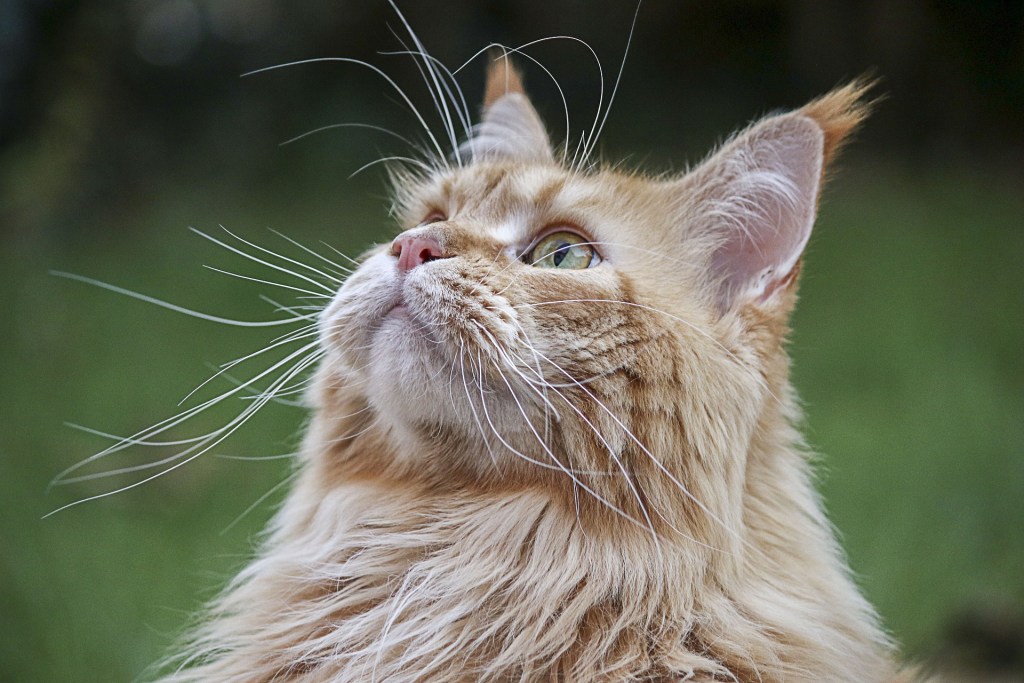
Vocalizations
Your cat may back up this visual body language with vocalizations that reinforce the meaning he’s trying to convey. Purring, for example, may indicate that your cat is happy and content, but some cats will also purr when they’re feeling anxious as a form of self-soothing.
Your cat also has multiple meows, and you’ll need to watch him carefully to learn what they mean. He probably has an attention-grabbing meow when he wants to be fed. A shorter, lighter meow might be a sign of affection.
A cat who’s truly aggravated or feeling threatened may release a growl that seems to come from deep in his throat. This is a sure sign that you need to back off and let him be.
Putting it all together
If you look at any one element of your cat’s body language, there are probably multiple meanings behind that signal. That’s why it’s important to view your cat’s body language as a collection of signals and information. When you look at his eyes, ears, vocalizations, body posture, and more, you’re more likely to identify the correct meaning behind the signs your cat is giving you. Learning to read body language can help you better understand when your cat is happy, uncomfortable, or even aggravated. You can better give your cat what he needs, whether that’s some time alone or the affection he’s seeking. This can amount to a happier life for you both.
